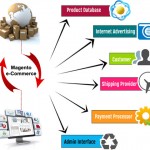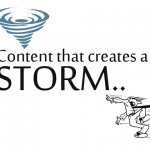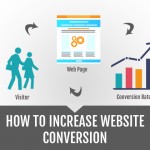One of the most vulnerable moments of your online presence is when your website is hacked or your web identity compromised. And it can happen to anyone of us. Just for the record – hackers do not just go after established names, nor are the super successful sites on the internet safe from hackers. Not unless they continuously make an attempt to stay up-to-date and follow a stringent policy to stay clean and unviolated.
So, we are discussing the ways to stay away from hackers. Is it possible? Well, to some extent, it certainly is. At least, we would (and should) do everything in our power to prevent being an easy prey to malicious attackers. Below, I have discussed how a few simple precautionary measures can save us hours, even weeks of misery.
When we are hacked, it is because there is a loophole somewhere in the system, a loose-end, which the hacker exploits. It could be in terms of outdated software or plug-ins, unclean codes or even chained/ connected accounts. In fact, sometimes it could even result from the security questions we set to retrieve our passwords. We freely share the answers on the web through the various social networks we form. Information like birthday, mother’s maiden name, pet’s name, school, university and city where you were born could be all the hacker needs to violate your account and identity.
SO now to prevent web identity theft or our websites being compromised by external attackers, the following steps could be a start. Of course this is not equivalent to having an expert diagnose your site for further fine tuning.
First and foremost, share less. Compare your social presence 10 years ago, and imagine how much you have opened up since then. The web is increasingly becoming more demanding and constantly luring users to share more of their personal data, choices and ‘likes’, and personality traits, just to be able to better read the market and meet the gap in demand and supply. In the process, the naïve user unknowingly discloses critical information that could wreck havoc in his life, should the information reach the wrong hands. And that’s exactly what happens so often.
Another vulnerable area that lands many into trouble is linked accounts. With linked accounts, all the hacker has to do, once he has access to one of them, is track back to all related accounts and ruin the owner’s web identity. Oftentimes, your web entity is all you have to make yourself known.
Be very cautious with your passwords. This is the key to all your data. Ensure to (a) keep a password which is unique for each account, (b) does not constitute of your birthday, name, or your graduation year, and (c) is certainly not a random pick from your keyboard. An ideal password is a word (or phrase) of your choice with a combination of alphabets in upper and lower cases, special characters and numbers. You could better handle your bunch of passwords for all your accounts with the help of a password manager, or just maintain a diary safely stored in your drawer! You can still trust people
Using a good firewall or anti-virus on your system will save a lot of unwanted hassles. It is a way to ensure that you are notified anytime you have landed on a page that your firewall does not trust, or senses some problematic behavior on.
Update your system, software’s and plug-ins regularly. Keeping outdated software applications on your system is like inviting problems. An update is released whenever a loophole or an area of improvement is identified on the present configuration. It is highly likely that the old version contained a bug or has been found vulnerable to external attacks. Hence it would be an easy route to your system and thence to your data.
Ever thought keeping a back up of your data is worth the time and effort? Those whose data/ system/ websites have been compromised will vouch for it! It probably may seem like waste of time maintaining a back up, but imagine losing all your important files and documents without a copy to fall back on! That’s a nightmare you don’t want to invite. And while keeping a back up, saving it in the cloud could be convenient, but not the best option, considering it is a shared host accessed by multiple users. You should have a personal copy of all your can’t-do-without files, just in case.
And ultimately, things like using a shredder could make a difference. When trying to access your accounts, especially email accounts, bank accounts and other critical and restricted information on a shared computer, be very cautious. You are most vulnerable here as you don’t know what malware protection the user has availed, nor if the system is already compromised. Another point to follow is to resist the temptation of clicking a forwarded link that you are not familiar with. Needs no explanation, these are simply trouble makers, and you better stay away!
These smart moves are the difference between being an easy prey, and being left out in search of a more gullible account/user. Your account may still be hacked, but it’s just about keeping your chances slimmer!



 (6 votes, average: 4.83 out of 5)
(6 votes, average: 4.83 out of 5)






